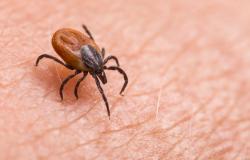People addicted to drugs like opioids become obsessed with using these drugs, often even to the detriment of basic physiological needs like eating enough. According to one study, this influence is caused by a hijacking of the brain’s biochemical reward system which makes the consumption of this type of drug more rewarding than that normally associated with the satisfaction of physiological needs.
Altering consciousness through drugs is a behavior that emerged very early in human history, as evidenced by the discovery of clay tablets that described the consumption of opium derived from the sleeping poppy (Papaver somniferum) more than 8000 years ago in Mesopotamia.
This attraction to the poppy comes from its high content of alkaloids such as morphine which have a strong analgesic action, by far the most powerful in the plant world.
By binding to receptors located in the central nervous system, substances derived from opium (opiates) or opioids (molecules not related to opium, but which have a similar analgesic pharmacological effect) prevent the pain signal reach the brain and help relieve pain.
Deadly addiction
The strong analgesic action of opiate and opioid derivatives is essential to clinically alleviate several acute pains (postoperative, traumatic, advanced cancers).
On the other hand, repeated consumption of these substances over long periods can create a serious problem in some people by leading to tolerance to the analgesic effects, that is, increasingly higher doses of these substances are required. to achieve a similar pharmacological effect.
This tolerance can lead to dependence and overconsumption of these medications, which is very dangerous, because opiates and opioids cause in high doses a complete inhibition of nerve impulses to the lungs and death from respiratory arrest.
This danger is particularly highlighted by the North American opioid crisis, caused by the abuse of certain opioids such as oxycodone and fentanyl, which has caused tens of thousands of deaths by overdose since 2010.
Reprogrammed brain
The brain has a neuro-biochemical reward circuit, selected during evolution to promote behaviors necessary for the survival of the individual and the species (drinking, eating, reproducing, among others). For example, eating a good meal when hungry causes the release of dopamine, an important neurotransmitter that generates a pleasure signal that encourages repetition of the action.
It has long been suspected that hard drugs such as opiates and opioids create dependence by activating this reward circuit, so that the pleasure caused by the use of these drugs relegates the satisfaction of basic physiological needs such as adequate nutrition to the second plan.
Thanks to the results of a study recently published in the prestigious Sciencetoday we understand better why1.
In this study, researchers used model systems to compare the neural processes activated by morphine and cocaine, two highly addictive drugs, to those involved in rewarding basic physiological needs (drinking, eating).
They first confirmed that drugs and basic needs activate the same region of the brain (nucleus accumbens), where the reward circuit is located.
However, they observed that repeated exposure to drugs more strongly increased dopamine production in this region of the brain and, surprisingly, at the same time disrupted the positive response normally associated with the satisfaction of basic needs.
Thanks to extremely sophisticated biochemical approaches, researchers managed to identify a protein called RheB (Ras homolog enriched in brain) as the main trigger of this hostage-taking of the brain by drugs.
Molecular elimination of the gene encoding this RheB protein prevents drugs from causing this satisfaction above that associated with basic physiological needs. It is therefore possible that the identification of molecules that can specifically interfere with this RheB protein could represent an interesting avenue for improving the treatment of drug dependence, to give the brain control of its decisions again, through a new class of therapeutic agents targeting RheB.
1. Tan B et al. Drugs of abuse hijack a mesolimbic pathway that processes homeostatic need. Science, published April 19, 2024.






